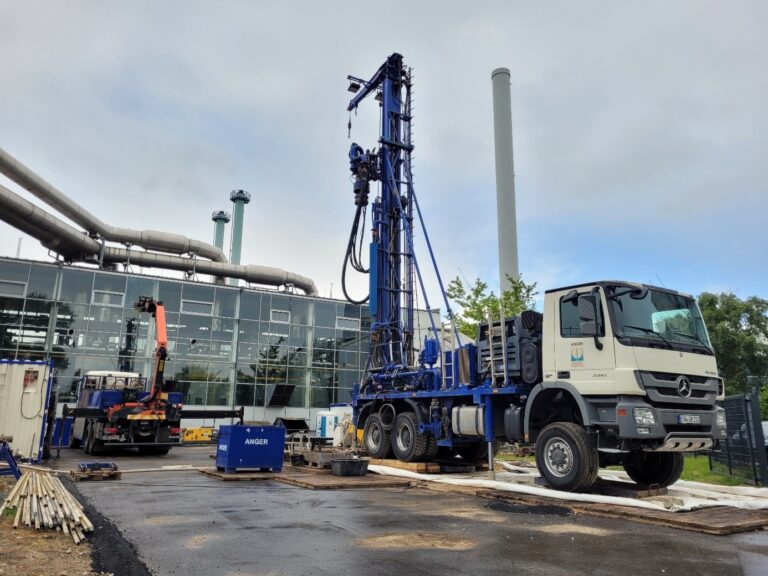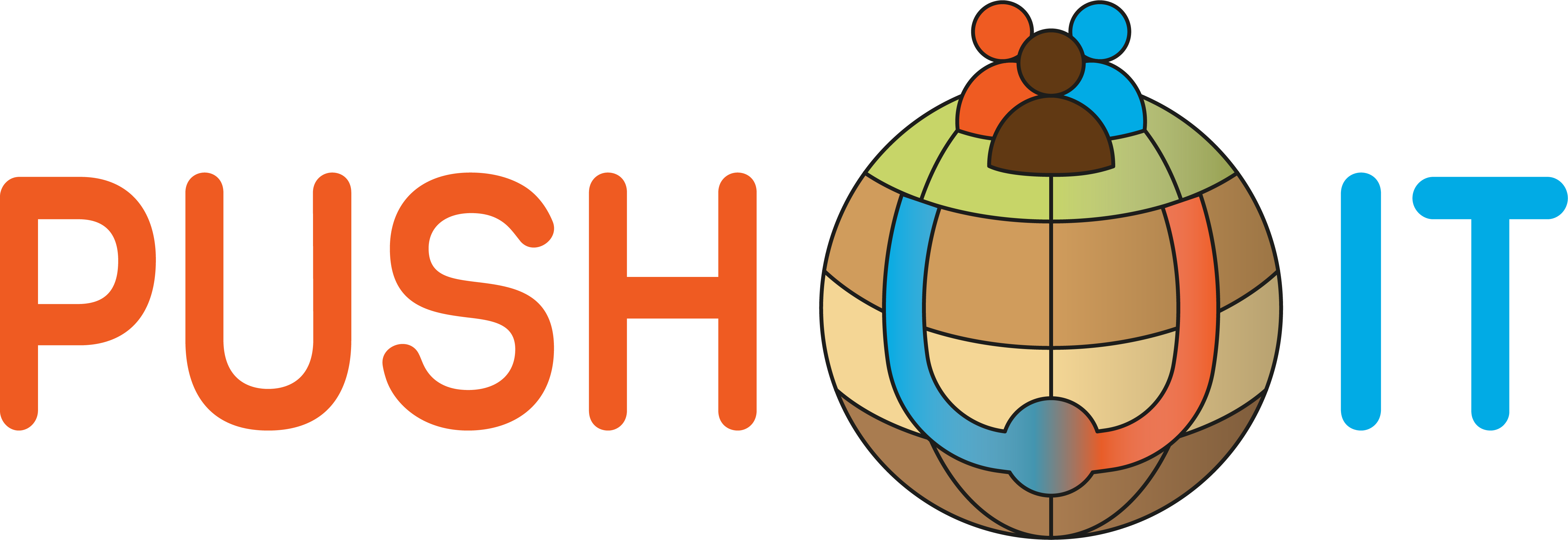Crucial workover completed at Berlin’s ATES site
Between April 15th and 17th 2024, new developments took place at the ATES site in Berlin Adlershof. Our team tackled some operational challenges within the research well and performed a workover. This intervention was necessary due to a previous issue related to a faulty cementing process during the installation of the well in 2022.

The workover
The first step on April 15th involved determining the cementing head at the lower part of the borehole. Using advanced methods such as the Free Point Indicator (FPI) and fiber optic cable strain measurements, we could confirm the free point of the tubing very precisely. Identifying the free point was crucial to pinpoint the stuck tubing at the end of the borehole.
After these assessments, the tubing was cut at 292m depth and the old tubings were pulled from the borehole. This was quite a heavy job due to some remaining cement inside the old tubing. On the 17th April, the last tubing was successfully pulled from the borehole.
Next steps
In the coming weeks, the existing well will be cemented until the anchor casing and the drilling of the sidetrack will start. The goal of this phase is to reach the target aquifer, the Hettangian sandstones, at a depth of 370-390m. The sidetrack’s endpoint will lie approximately 10 meters from the original borehole.
Hot-Push-Pull Test
After completion of the sidetrack, the research well will be used for the first Hot-Push-Pull Tests in the PUSH-IT project. During these tests, we will simulate storage by injecting hot formation water into the aquifer for approximately 24 hours, followed by production after a 24-hour waiting period. The injection and production cycle will be repeated multiple times. This test will provide us with information in the hydraulic properties of the aquifer, the heat recovery factor (which percentage of the stored heat can be recovered) and potential influence of the heat on chemical or microbiological processes.
Want to know more about the process in Berlin? You can contact Katrin Kieling or Stefan Kranz.

PUSH-IT is a project funded by the European Union’s Horizon Europe research and innovation programme under grant agreement No 101096566.
Funded by the European Union. Views and opinions expressed are however those of the author(s) only and do not necessarily reflect those of the European Union. Neither the European Union nor the granting authority can be held responsible for them.
